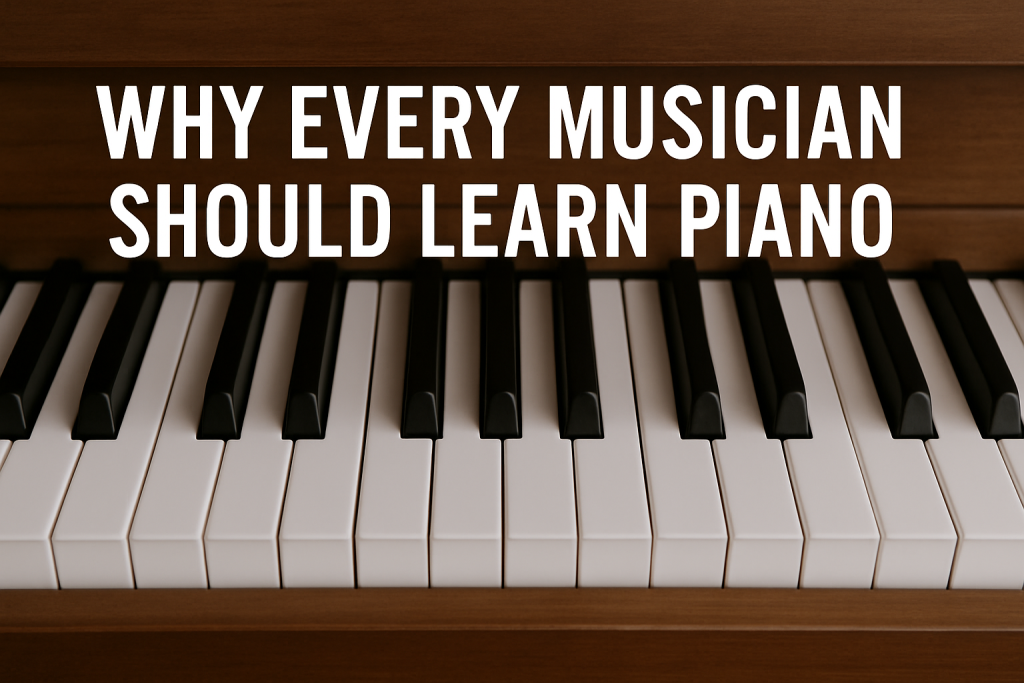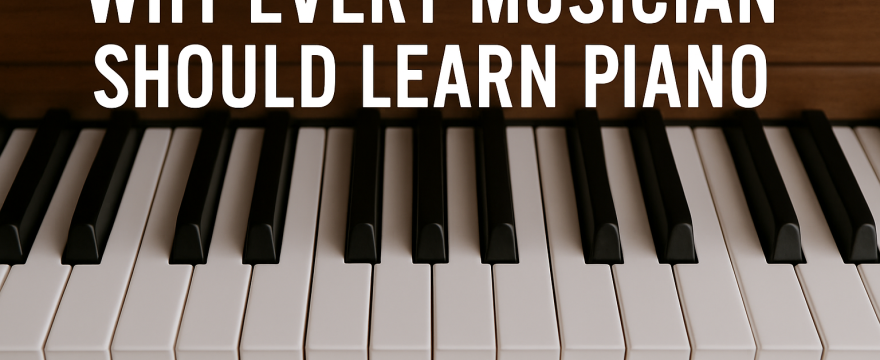Did you know that most professional musicians, regardless of their primary instrument, develop at least basic piano skills? This is especially common among those who pursue music at the collegiate or university level. In fact, piano proficiency is often a required part of a music degree, with students typically completing two to three semesters of piano study to fulfill graduation requirements.
Why Is Piano So Widely Emphasized?
The piano is considered one of the most versatile and foundational instruments in music education. Its linear, visual layout makes it an excellent tool for understanding music theory concepts such as:
- Half and whole steps
- Intervals
- Harmony
- Chord construction
- Voice leading
With the ability to play multiple notes simultaneously, the piano allows musicians to explore melody and harmony at the same time—something few other instruments can offer. You can play a bass line or chord progression with one hand while playing a melody with the other, developing hand independence and coordination that translates to many other musical disciplines.
Versatility Across Genres
The piano exists in nearly every major style of Western music—classical, jazz, pop, rock, R&B, gospel, hip-hop, musical theater, film scores, and beyond. Its widespread presence gives pianists access to one of the largest and most diverse repertoires of any instrument.
Additional Benefits
- Develops reading skills in both treble and bass clef
- Strengthens rhythmic awareness and finger dexterity
- Enhances composing, arranging, and songwriting abilities
- Opens up opportunities for teaching, accompaniment, and performance
Whether you’re a vocalist, string player, percussionist, or brass/woodwind musician, gaining even a basic understanding of piano will enhance your musicianship and deepen your grasp of how music works. It’s a tool that supports learning, creativity, and communication in virtually every area of music.
Links
Brighton Music Academy: https://www.brightonmusicacademy.com/

